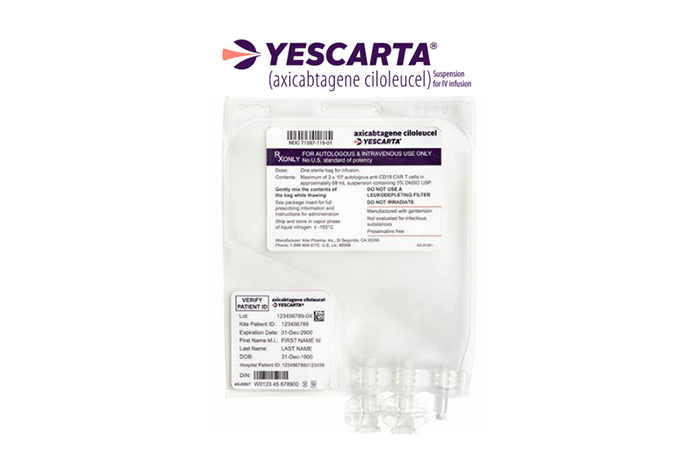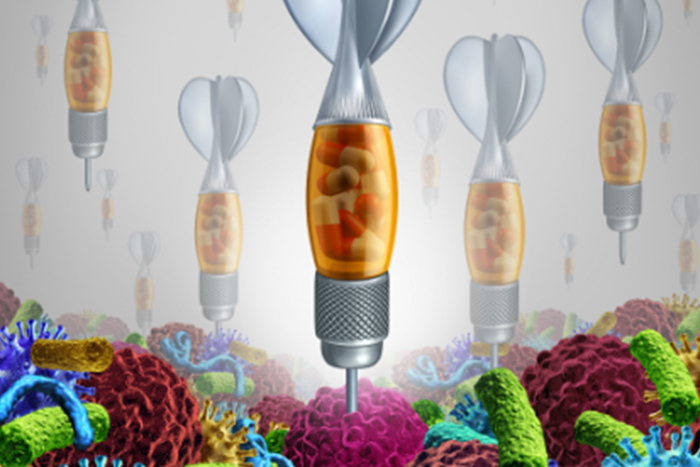


In patients with recurrent or refractory FL who had previously received third-line or more systematic treatment, the overall remission rate (ORR) was 91%, and the complete remission rate (CR) was 77%. After 24 months of treatment, 56% of patients were still in remission.
June 29, 2022 / BIOON / -- kit Pharma, a cell therapy company under Gilead, recently announced that the European Commission (EC) has approved a new indication of CD19 car-t cell therapy yescarta (axicabtagene ciloleucel): for the treatment of adult patients with recurrent or refractory (r/r) follicular lymphoma (FL) after third-line or more systematic treatment. Yescarta retains the orphan drug qualification (odd) in this indication.
In the United States, yescarta received accelerated approval in March 2021 to become the first car-t cell therapy for fl. its specific indications are: for the treatment of adult patients with r/r FL after second-line or above system treatment. Previously, the US FDA has granted yescarta a breakthrough drug qualification for the treatment of FL.

This FL indication marks the second indication approved by yescarta in the EU, and also marks the third indication approved by the cell therapy developed by kite in the EU. Yescarta's first indication was approved in August 2018: for the treatment of adult patients with recurrent or refractory (r/r) diffuse large B-cell lymphoma (DLBCL) and primary mediastinal B-cell lymphoma (pmbcl) after second-line or above systematic treatment. In addition, in December 2020, another CD19 car-t cell therapy of kite company was approved by the European Union, becoming the first car-t cell therapy for mantle cell lymphoma (MCL). The specific indications are: for the treatment of adult patients with recurrent or refractory mantle cell lymphoma (r/r MCL).
FL is an inert non Hodgkin's lymphoma (inhl), in which malignant tumors grow slowly, but become more aggressive over time. FL is the most common inert lymphoma and the second most common lymphoma type in the world. FL accounts for about 22% of confirmed lymphoma cases worldwide. In Europe, about 27000 new cases are confirmed every year.
FL indication approval is based on the results of the key zuma-5 (nct03105336) clinical trial. This is an ongoing single arm, open label, international, multicenter phase 2 study that evaluated 122 adult patients (≥ 18 years old) with r/r FL who had previously received second-line or more systematic treatment, including an anti-CD20 monoclonal antibody in combination with alkylating agents. The efficacy and safety of a single infusion of yescarta were evaluated. The primary end point was the overall response rate (ORR). Secondary endpoints included complete remission rate (CR), Orr and Cr in patients treated with third-line or above, duration of remission (DOR), overall survival (OS), progression free survival (PFS), and incidence of adverse events.

The data showed that in patients who had previously received three-line or more systematic treatment (n=75), the total remission rate (ORR) was 91% and the CR was 77%. The median dor was 38.6 months, and the proportion of patients with remission after 24 months was 56%. Among all assessable patients in the zuma-5 study (n=119), the safety observations were consistent with yescarta's known safety profile. The incidence of ≥ grade 3 cytokine release syndrome (CRS) was 6%, and the incidence of nervous system events was 16%. Most CRS cases (99%) were resolved by the data deadline, and 60% of neurological events were resolved within 3 weeks. The most important and common adverse events were CRS (77%), infection (59%), and encephalopathy (47%).
Ibrahim Yakoub Agha, director of hematopoietic cell transplantation and cell therapy department of Lille University Hospital in France, commented: "FL with multiple relapses is a difficult disease to treat, and the prognosis is particularly poor, because only 20% of patients are still alive 5 years after the second relapse. In the zuma-5 study, 91% of patients who previously received three line or multi line treatment showed remission to yescarta treatment, and more than half of them still had remission after 2 years. This lasting remission is crucial for patients who need treatment options that can bring long-term benefits."
